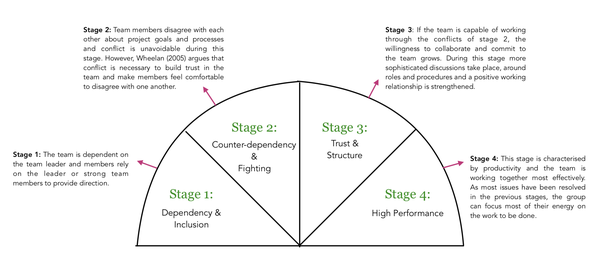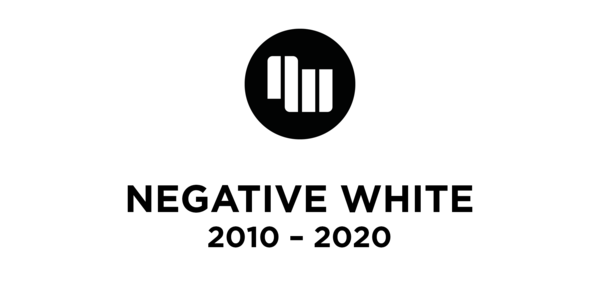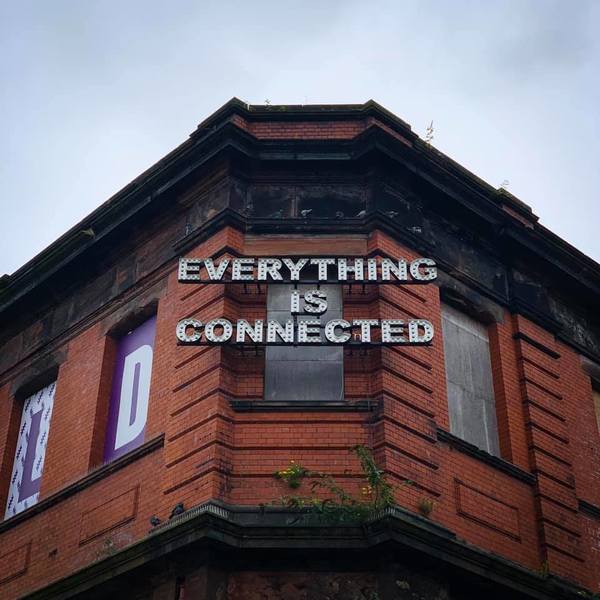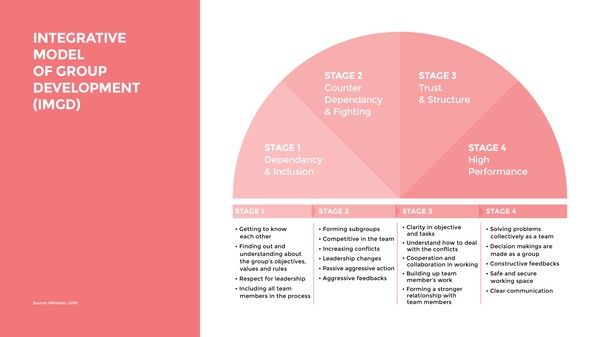Leadership
Well done, Portugal
A country makes it illegal for your boss to text you after work. Why this is a good thing.
With the rise of smart devices, employees face a new challenge: The urge to be constantly reachable.
It has been a problem for a long time. However, the issue finally gets the attention it deserves. In the wake of the pandemic, people were forced to work remotely. As a result, companies had to speed up the digitalization of their processes. And it shed a highlight on mental health in the workplace in the already stressful environment created by Covid.
Under the new rules, employers could face penalties for contacting workers outside of office hours. Companies will also have to help pay for expenses incurred by remote working, such as higher electricity and internet bills.
Well done, Portugal!

The law will certainly help to create a better work-life balance. However, Portugal’s new rules are probably only a cure for symptoms but not for the origin of the problem.
One problem is the lack of leadership responsibility.
I, too, found myself often in a situation where an 8-hour day just wasn’t enough to accomplish everything I needed to do. Maybe because it took longer than expected, sometimes because I wasn’t happy with the result. In a management position, overtime is already accounted for and compensated by more vacation time or higher salary.
Nevertheless, as a leader, I have to be aware that those rules don’t apply to my team. I cannot forward the pressure to my colleagues. In fact, I don’t only have to put boundaries on my communication but also set them for myself.
Avoid being seen as “underperformers”
Of course, we all find ourselves on the receiving end of after-hour messages. The binging and banging of mail or Slack is an issue. They prohibit us from relaxation.
But while it’s tough for leaders to set boundaries, it’s even harder for an employee. They feel obligated to check in even after hours because they want to excel. They want to show that they care, that they go the extra mile. And in any circumstance, they want to avoid being seen as “underperformers”.
Naturally, this is very unhealthy short-term thinking. The impact that the always-on mindset has on mental health will, in the long run, destroy any gain that this behaviour brings along.
The real issue: Culture
Now, the easy way out is to say: It’s all the leadership’s fault. And clearly, they have the leverage to drive change. But the real issue here is, once again, a toxic work culture. It affects the leaders and employees alike.
We should ask ourselves the tough questions: Why do we work till late? Why do we keep sending and reading messages in our supposed free time? Is this behaviour expected in my workplace?
And most importantly: How does this behaviour affect us in our private and work lives?
The reasons might be highly individual (“I want to succeed in my career!”) or structural (“My company is understaffed!”).
We’re designing around the problem
Unfortunately, we rarely ask those essential questions. Instead, we accept tools that design around the problem. And yes, I very much include myself here because I use them regularly. The scheduler of messages on Slack or Gmail. Or Apple’s focus feature. Yes, they’re great. But they merely treat symptoms again.
Cultural change needs a lot of time. And time wasn’t ample when the pandemic hit. Confined to our apartments, the problematic symptoms of an always-on mindset got more and more severe. Next to restrictions in our personal lives, after-hour texting and mail contribute heavily to a stressful environment.
Therefore, there’s a need to regulate the new work reality. Portugal boldly moved forward with its regulations, forcing companies to overthink their culture, behaviours, and processes. It’s a forced approach, yes, but one that might improve the well-being of both employees and management.
Recommended Reads
- The Worst of Both Worlds: Zooming From the Office [Paywall possible]
- Proof That Positive Work Cultures Are More Productive
- Remote Work Is Fine. The Real Thing Scaring CEOs? Hybrid Work.
Best,

Leadership‘s role in mental health
As mental health awareness starts to unearth in Switzerland’s media industry, it’s essential to talk about leadership and its responsibility regarding mental health issues.
John works hard. He is passionate about his profession. John is very good at what he does, great even. He is competitive, often outperforming others in his team. John drives himself to give ever more, pushes his limits.
And after a couple of years, John gets a promotion. Now, John is in charge.
We all know a John. He’s neither the good nor the bad guy in the story. Instead, he’s a character who we maybe even aspire to be. Someone with great passion, dedication, and spirit. Someone who constantly tries to be better in what one does. John is not a problem for a company. Not until he gets promoted, at least.
Unfortunately, still, many businesses promote the best performers to leadership positions without training them in their new roles. Once you’re in charge, your responsibility shifts from tasks to people. And not everyone great at the job is automatically suited to manage a team.
I’ve written this before: A great leader’s most important job is to provide an environment where everyone can be the best version of themselves.
As mental health awareness starts to unearth in Switzerland’s media industry, it’s essential to talk about leadership and its responsibility regarding mental health issues.
A disregarded issue
A few days ago, I attended a panel on mental health by Switzerland’s young journalists’ association. And I once again realised how crucial leadership is to psychological safety and mental wellbeing in a company.
The media industry doesn’t face more significant challenges than others when it comes to digitisation. Shrinking advertising revenue thinned the personnel in newsrooms, distributing the ever-increasing pressure and speed on fewer shoulders.
However, journalism is not simply a business like retail but should also fulfil a broader role in society. So, the stakes are exceptionally high, which makes journalism a fascinating case.
Many disrupting debates are happening around journalism. The reflection in newsrooms (and parts of society) around diversity, inclusion and trust are vital. Actually, these debates should be held in an even broader fashion.
However, mental health is still mostly disregarded by media companies. The standard narrative: Journalism is a passion, not a profession. You need to really want it. You need to be a John.
“Young journalists cannot afford to have an opinion.“
Yes, it’s true: Most journalists I know have an almost unnatural passion for their job. And they are undoubtedly aware of the job’s societal significance. “You choose this profession because you burn for it. So you have to be incredibly careful that you don’t get burned out,“ explained Vinzenz Greiner recently in a video statement.
Those two aspects drive them to perform, even in circumstances where others might scratch their heads. For example, most newsrooms still don’t have a proper time reporting in place. Unpacking all the structural problems and their interconnections would exceed the limits of this post in an instant.
But one thing stood out to me while attending the mental health panel.
Subscriber Vincenzo asked me three intriguing questions about the last issue’s topics. Here’s my advice.
Good morning; first, I have to say that I’m very grateful for the responses I got after the newsletters on manipulative communication. I highly appreciate and value the exchanges with all of you.
In the last issue, I wrote about countering manipulative behaviour in the workplace. Vincenzo, also a subscriber, had some great follow-up questions:
- How do you stay patient without acting uncivil?
- Where does the trust come from to be vulnerable?
- How do you translate this beyond your own (organizational) influence within a company?
Before answering Vincenzo’s questions, I want to state that my responses might not apply to everybody’s situation. Every person and every organization is different. These are just my suggestions drawn from my own experiences in various workplaces. Let me know in a reply how you would answer those questions.
How do you stay patient without acting uncivil?
To stay calm and patient can sometimes be challenging. We all have our tolerance for how much incivility and manipulation we can handle. To be frank: It merely depends on your character.
However, let me tell you about a confrontation I once had with a deputy editor-in-chief. I went up to him to discuss an early draft of a story. He took a short glance, and suddenly, he erupted. Yes, he shouted all over the place. I asked once what the problem was, but he didn’t calm down. So I retreated.

I did so because a) I don’t want to battle in a shouting match, and b) I would have lost anyway. Simultaneously, by deciding not to engage, I switch from a passive to an active role. If he wanted to continue the discussion, he had to come to me. In fact, 15 minutes later, he did and apologized and told me what I already suspected: His outrage had nothing to do with me but other factors.
The experience didn’t only teach me a lesson but also formed respect for this senior person. It takes some bravery to admit mistakes. In hindsight, I could have handled the situation even better by decisively voicing that I don’t engage in this kind of tone.
So my advice is to don’t communicate unprofessionally and explicitly clarify how you want to be treated. Also, block some time to reflect. I force myself to do so by publicly blogging, and yes, this newsletter is also kind of a reflection.
Where does the trust come from to be vulnerable?
That’s the hard part: Without vulnerability, there’s no trust. Being vulnerable is a risk, and if there’d be trust, it wouldn’t be a risk. It’s a leap of faith.
Let me illustrate this with another personal story. A year ago, my girlfriend and I broke up after more than four years. It was a warm September Sunday. I wasn’t in a great place, to say the least.

On Monday, I took the chance and told my co-worker about it since it might influence my mood and behaviour at work. I dared to share something very personal and painful without knowing how he’d react.
What happened was astonishing. He also opened up about some personal struggles that occupied his mind at the time. It was no longer a conversation between employee and superior but between two equal human beings.
Since then, we’ve established a sincere and trusting relationship. Being honest with each other requires courage, but ultimately it will pay off.
How do you translate this beyond your own (organizational) influence within a company?
Oh, that’s the tricky question. I admit to being lucky: I work with different people and teams all the time. These instances always provide an opportunity to initiate change. However, it’s hard for me to measure the impact I might have on others.
I also don’t really have a personal experience to answer this question. Nevertheless, I could promote the Team Canvas as an adequate tool to other team leaders. I think that change on a larger scale has to be informed by the leadership of an organization.

There are small steps you can take: Lead by example and inspire others. If you’re a team leader, you should also reflect on your role. Personally, I subscribe to the philosophy of servant leadership. It’s not my job to continually correct my employees but create an environment where they can be at their best.
Hopefully, my behaviour leads to higher satisfaction within the team, and therefore, might inspire other team leaders to follow the path.
Do you have any further questions or possible answers to the questions above? Let me know by hitting reply.
Also, a quick shoutout to Konrad Weber, who started his own company around digital strategy, team building, leadership, agility, and transformation. Check out his website.
Best,

P.S. Be sure to hit 👍 or 👎 to give me a sign of whether you liked this newsletter or not.
If you don't want these updates anymore, please unsubscribe here.
If you were forwarded this newsletter and you like it, you can subscribe here.
Created with Revue by Twitter.
In the last issue, I wrote about the manipulative behaviour I experienced recently. Here are some additional thoughts by a subscriber. And a few counter actions you could incorporate.
Hey there, I admit that the last issue felt a bit bleak. So I was delighted to have a small but fruitful exchange with subscriber Cornelia. She’s experienced similar situations but also rarely had immediate answers ready. However:
I think the first step should be to trust your intuition and to reflect on the experience. Emotions and trust are interconnected. If they’re missing, workplaces become empty, toxic zones – even more so if they’re not diverse enough. In that case, the urge for control and power takes over. Failures won’t be discussed but repressed; everybody tries to be perfect or – at least – to fit in. Problematic incentives take care of the rest.
I agree with her assessment but pointed out that everybody needs to understand what the problem is to be able to reflect. Do we even have the language to express it? Or are we trained to see ourselves as the problem?
Cornelia disagreed:
I think it’s too simple to say we lack the language to point out the problems. We’re experiencing dark times right now, and it can be dangerous to raise your voice. There are valid concerns about exposing yourself and being perceived as uncomfortable. I experienced that one could lose the job because of it.
Cornelia concludes that we’re exposed to countless reorganizations, cost-cutting, and perplexity towards digitization in the communication and marketing business. “But we must continue to be brave and name the things that concern us,” she says.
Understanding The Problem
Although everybody throws around buzzwords like bottom-up and employee empowerment, the manipulative behaviour and lack of trust root in leadership. Leadership has the leverage to introduce cultural change in an organization since they inherited the power.

However, leaders might refuse to do so because the transformation might result in power loss as it gets more evenly distributed amongst the team members. Susan A. Wheelan’s book “Creating Effective Teams” is a must-read to understand the team development. In a more populistic way, Simon Sinek describes the discrepancy between performance and trust. Sinek explains by the example of the Navy Seals that trust matters more than performance.
But you cannot force trusting relationships; they take time to form, as Wheelan points out in her book. Teams develop quite similar to humans themselves.

Source: Alexandra Schwartz
The key ingredient to even reach the fourth stage of group development is psychological safety. Google, a company insanely committed to data, also found this to be the case in its Project Aristotle. Once again, Sinek grasps the essence of psychological safety:

What a Trusting Team Feels Like
Psychological safety also means to be vulnerable. The power of vulnerability is something that Brené Brown researched deeply. And the impact of the vulnerability, empathy, and civility on business success was explored by Christine Porath. I highly recommend these two talks.
How To Kickstart Change
Now, these inputs from (popular) science are exciting but not very actionable. It takes a lot of courage to be vulnerable (although I only can emphasize its effectiveness in forming trust).
Fortunately, there are many tools around that facilitate the first steps towards a psychologically safe environment. For my personal experience, I can recommend the following:
Team Canvas
The Team Canvas helped me create a space where my team and I can talk openly about our shared values and goals and individual needs, expectations, strengths, and weaknesses. Important: Block enough time for the workshop to have deep conversations.
Telling Our Stories
Telling Our Stories is more of a one-off tool at the very beginning of a new team. In contrast to the Team Canvas, it creates a more personal understanding of the individual members.
Check-In / Check-Out
Daily check-ins and check-outs create an environment in which every team member gets heard. Besides the benefit of task transparency, this tool allows the people to share their current state of mind.
Stinky Fish
The Stinky Fish is a quick activity that’s best suited for project teams. Its focus is all about fears, anxieties, and uncertainties related to the project. Stinky Fish effectively enables openness within a group.
Reflection & Feedback Sessions
Too often, we’re absorbed by the daily business. I found it helpful to block time for dedicated feedback and reflection sessions.
For reflection, it is essential to talk from the I. We tend to speak in more general terms, and therefore exclude our feelings from the reflection.
For feedback sessions, I like to use the “I appreciate…” method because it’s short and framed with a lot of positivity.
I hope these approaches help you facilitate the change if there’s a need in your workplace. Thanks to Cornelia for allowing me to share her thoughts with you. Also, thanks to my Hyper Island fellows Ilona, Nika, and Paula, who shared their favourite tools.
Best,

Let’s talk a bit about teamwork perception.
Good morning, a few weeks ago, I had a conversation, and one statement stuck with me until today.
It was a discussion about me providing a solution. The other person said: “You should be excited about this opportunity. You’ll benefit from this as well.”
I can’t go into much more detail about the discussion. However, I can say that the subject was stressful and, in fact, my team nor I benefited from the whole matter. Actually, the opposite was the case.
It’s unveiling a pessimistic attitude towards people.
Even though the statement was simply untrue, I started to explore this kind of communication. And maybe you’ve also experienced similar behaviour yourself.
I think it originates in fear. Fear of failure and rejection. Moreover, it’s unveiling a pessimistic attitude towards people: Others only will do something for me if they gain personally from the action. The negativity leads then to such manipulative communication.

The attempt of manipulation felt almost like an attack on my values and beliefs.
My stance is that I want to help people by providing them with the tools and approaches necessary. I rather think holistically about a product than just about the things in my responsibility. Therefore, I don’t act only to gain personal advantages. And I’m well aware of whether I benefit directly or not. The attempt of manipulation felt deeply personal – almost like an attack on my values and beliefs.
I don’t know about you, but to me, this approach to persuading someone through manipulative communication is a significant problem. Although it might work sometimes, it creates a flawed culture. Real and sustainable collaboration isn’t possible if manipulation is the foundation.
We’re confronted with digital disruption, and we are facing immense challenges. Manipulative persuasion has to become a relic from the past when the internal competition wasn’t as problematic (but still stupid, to be honest). We have to facilitate a mindset of collaboration and get rid of the notion that people only act because of egoistic reasons.
I recognize the behaviour that I’ve experienced and my irritation as part of the inevitable cultural transformation clashes. Naturally, I show my belief in unconditional collaboration rather than just speaking of it. However, I still struggle to find a proper response. It seems that some people either still don’t believe it or are very suspicious.
Now, I’m happy to know if you’ve experienced similar issues. Do you have advice on how to tackle such behaviours? I’m looking forward to hearing about your thoughts and techniques. Just hit reply on this mail.
Thanks, and stay safe.

Learnings From A Decade
What I learned from running an online magazine for ten years.
Hi there, it’s been a long time since the last newsletter. However, I still was shocked that it’s been already three months. Time flew by like a fighter jet, and sometimes I felt like a passive passenger, not a pilot.
The most critical decision in the past months was probably to close down my online magazine Negative White after a decade of voluntary efforts. There are two reasons for the decision:
Increased Workload
By the end of June, I got appointed as product manager for Blick.ch. I’m excited about this tremendous opportunity, and I love to work more on projects, development, and strategy.
However, it adds a ton of mental workload to my already tight schedule as Head of Community and product manager for our newsletters. I felt that I had to re-organize my energy.
Lost Joy
But what really drove the decision was the lack of joy, a general sense of fulfillment in work on Negative White. Sure, there were moments of happiness and success. Nevertheless, the moments when I felt overwhelmed and stressed by the things on my to-do list occurred ever more frequently.
In the very first newsletter issue I sent through Revue, I wrote about three key metrics: joy, relationship, and money. Joy was always the most significant driver for Negative White. Its decrease, therefore, led to the rational consequence: the era had to end. Don’t get me wrong; it was a tough decision nonetheless.

In 2018, I listed some of my learnings that Negative White provided in this newsletter. They’re still valid, but I’d like to offer a synthesized summary here:
Last week, I began studying Digital Management at Hyper Island. The first couple of campus days were emotionally challenging, inspiring, and enlightening. Here’s my biggest takeaway so far.

My motivation changed quite drastically throughout the months before the course even began. When I applied, I worked as a project manager. So naturally, I hoped to learn more about tools that will help me in that area.
Then, I got the position as the leader of the newly founded community team. I hoped, the master’s degree will provide me with skills and frameworks to lead.
But when I spoke to several Swiss alumni, I realized that it would probably change me instead of just stitching some knowledge onto me.

And that’s what happened. The so-called Foundation Days at Hyper Island kickstarted something in me, that was sound asleep for a far too long time: an inner dialogue about my feelings and needs.
While reflecting on the experience made in Manchester, I also came to another realization: You can’t form relationships with positions–only people. You may have respect because higher positions have higher authority. But that doesn’t mean you’ll connect on a human level.
In this rapidly changing world of digitalization, we’re facing more and more complex tasks. Effective teamwork is essential. I can recommend the book “Creating effective teams” by Susan A. Wheelan. It’s a great guide to understanding how groups have different stages in their lifespan. Here’s an article that may help you either.

Relationships formed between group members as well as the leader are crucial to creating a trusting, open, and creative environment that drives innovation.
Leaders have to inspire the change towards a more emotional – in fact, human – culture. That means they have to take the first step into vulnerability as described by Brené Brown: